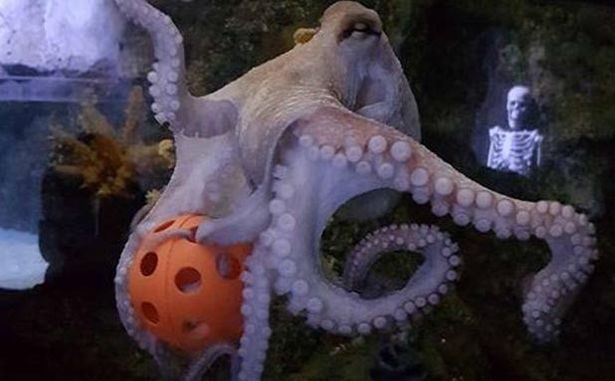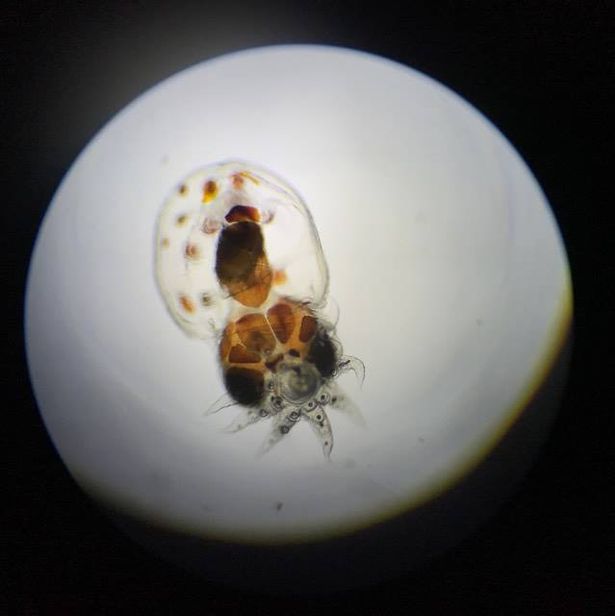
The Skegness Aquarium recently welcomed 400 new baby octopuses but, unfortunately, the mother will not survive to see the babies grow up. Beanbag was a well-known Common Octopus but nobody at the Skegness Aquarium knew whether she was a male or a female until she started to lay eggs. The eggs, which number about 400, have now hatched and the staff at the aquarium are quite excited to see so many young octopuses. However, this is a bittersweet moment since the female Common Octopus will sacrifice herself for her children.

To ensure that as many of the eggs as possible hutch, the mother octopus spends all her time ensuring the water is properly aerated while also protecting and cleaning the eggs. This means that she stops eating even before she’s laid the eggs. Because of this, Beanbag isn’t expected to survive. An aquarium spokesperson said that it’s always a cause for celebration when any species of animal has young ones because it shows that the staff are doing a good job of keeping the environment around the fish healthy. The babies are expected to continue hatching in the weeks to come.
In the wild, a female octopus produces as many as 500,000 eggs so as to increase the chances of at least some of the offspring surviving and only a few actually grow to maturity. Few breeds of octopus have been successfully bred in captivity and their young raised to maturity. There have been attempts to breed the common octopus in captivity but these haven’t had much success with only 0.2 percent of the offspring surviving after around 60 days.
However, despite the high chances that the young octopuses won’t survive for more than some weeks, the staff at the aquarium are not giving up just yet and the spokesperson stated that the crew would do as much as they can to help the octopuses survive. When she eventually passes on, Beanbag will be missed at the aquarium but she has a sibling (whose sex is also yet to be determined) which was to be moved to the display at some point this month and according to the aquarium, the new octopus will show people the intelligence of the creatures.
When an octopus reproduces, this is a sign that it is nearing the end of its life and this applies to both male and female octopus.